'I’m Thinking About the Future and How Much Impact I Can Make'
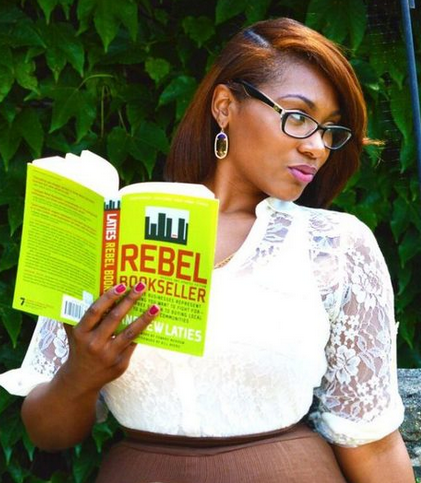

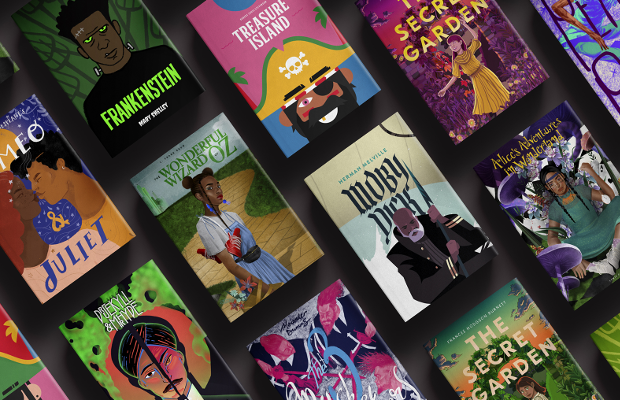 It was over before it started. On Wednesday, the day it was to launch officially, Barnes & Noble canceled plans to release a collection of reimagined classic book covers that would "feature protagonists of color" in what the company had originally described as "an initiative to drive awareness and champion the need for diversity within literature."
It was over before it started. On Wednesday, the day it was to launch officially, Barnes & Noble canceled plans to release a collection of reimagined classic book covers that would "feature protagonists of color" in what the company had originally described as "an initiative to drive awareness and champion the need for diversity within literature."
The project, a collaborative effort between Barnes & Noble Fifth Avenue, Penguin Random House and TBWA\Chiat\Day NY, met with immediate opposition on social media as soon as news about it began to be reported.
Author Mikki Kendall tweeted: "They could have Googled, chosen a dozen books by actual Black authors that are classics & sent those out with fresh covers & a big event. Add in bringing in contemporary Black authors to discuss these works & the whole thing is a win. They didn't do the easy or logical thing."
"Taking these stories and putting these covers on them is essentially literary blackface," author L.L. McKinney told Mashable. "The contents aren't different at all, they don't reflect the lives of the people B&N is attempting, very poorly, to connect to. Race is a lens that changes how the world is viewed, how you interact with it. Here, they've turned this very integral aspect of our lives into literal window dressing."
To find potential Diverse Editions titles, artificial intelligence was used to identify books in which "the protagonist's race or ethnicity had not been specified," according to B&N. Several artists were engaged to create limited-edition custom covers, a number of which were to be available at B&N's Fifth Avenue store in Manhattan throughout February, free with purchase of any of the 12 chosen titles, which included Alice in Wonderland, The Secret Garden, Moby Dick, Frankenstein and The Wizard of Oz.
On Wednesday, Barnes & Noble issued a statement, reading in part: "We acknowledge the voices who have expressed concerns about the Diverse Editions project at our Barnes & Noble Fifth Avenue store and have decided to suspend the initiative.... The covers are not a substitute for black voices or writers of color, whose work and voices deserve to be heard. The booksellers who championed this initiative did so convinced it would help drive engagement with these classic titles. It was a project inspired by our work with schools and was created in part to raise awareness and discussion during Black History Month, in which Barnes & Noble stores nationally will continue to highlight a wide selection of books to celebrate black history and great literature from writers of color."
Hachette Book Group has acquired more than 1,000 titles published by the Disney Book Group, including Newbery, Caldecott and Geisel award-winners, bestselling series, backlist titles, as well as some books that haven't been released yet.
These titles will begin publishing under Hachette's Little, Brown Books for Young Readers division and imprint, effective immediately. LBYR will publish print and e-book formats of these additional titles and hire a team to support the transition.
"We're thrilled to be the new home for this extraordinary collection of books," said HBG CEO Michael Pietsch. "HBG already knows and loves these titles after many years of handling sales and distribution for Disney Book Group's imprints, and we are proud now to become their publisher. This acquisition is a natural step in HBG's plans for growth and backlist expansion."
Megan Tingley, executive v-p and publisher, LBYR, added, "We are eager to welcome so many talented authors and illustrators to the Little, Brown family. LBYR has been focused on strategic growth, hiring new editors and expanding into graphic publishing and nonfiction, and this acquisition plays a significant role in this plan."
Disney Publishing Worldwide will focus on acquiring and developing content that can be leveraged beyond books across multiple platforms and media. DPW and its affiliates will continue to publish under multiple imprints, including Disney Hyperion, Disney Press, Disney Editions, Marvel Press and Disney Lucasfilm Press.
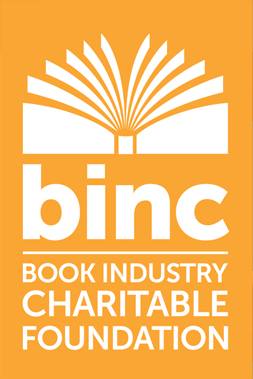 Applications are open for the Book Industry Charitable Foundation's annual higher education scholarship program. From now until March 11, booksellers and comics retailers can apply for the scholarship, which can support their own higher education goals or those of dependents, spouses or partners.
Applications are open for the Book Industry Charitable Foundation's annual higher education scholarship program. From now until March 11, booksellers and comics retailers can apply for the scholarship, which can support their own higher education goals or those of dependents, spouses or partners.
This year, Binc will award seven $3,500 scholarships, as well as the Karl Pohrt Tribute Scholarship, which will give $5,000 to an owner or employee of a bricks-and-mortar bookstore who has overcome a learning adversity or is a nontraditional student. The scholarships are offered for full or part-time study at an accredited institution of the student's choice, and the program will once again be adminstered by the organization Scholarship America.
"Every year we look forward to launching our scholarship program," said executive director Pam French. "Helping booksellers' families achieve their educational goals is one of the many ways Binc supports booksellers and comic retailers. I encourage all booksellers who are parents or guardians of students who are pursuing higher education to apply."
The evaluation process for applicants will look at financial need, prior academic achievement and leadership capabilities, work experience, family or personal circumstances and a statement of career and educational goals. Interested booksellers can find more details here.
Applications are also being accepted for the Denver Publishing Institute, while applications for the annual Carla Gray Memorial Scholarship for Emerging Bookseller Activists and the Indies with Impact Award will open later this year.
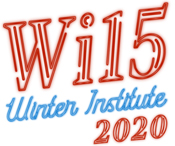 On the final day of Winter Institute 15 in Baltimore, Md., last month, a panel of Black booksellers and publishers convened to discuss the history of Black bookstores in the U.S. from the 1960s to the present.
On the final day of Winter Institute 15 in Baltimore, Md., last month, a panel of Black booksellers and publishers convened to discuss the history of Black bookstores in the U.S. from the 1960s to the present.
On the panel were W. Paul Coates, founder of Black Classic Press in Baltimore; Shirikiana Aina Gerima, co-owner of Sankofa Video Books and Cafe in Washington, D.C.; Judy Richardson, documentary filmmaker and civil rights activist who helped found Drum and Spear Bookstore in D.C.; and Nati Kamau-Nataki, co-founder of Everyone's Place African Book Store and Cultural Center in Baltimore. Joshua Clark Davis, University of Baltimore professor and author of From Head Shops to Whole Foods: The Rise and Fall of Activist Entrepreneurs, moderated the discussion.
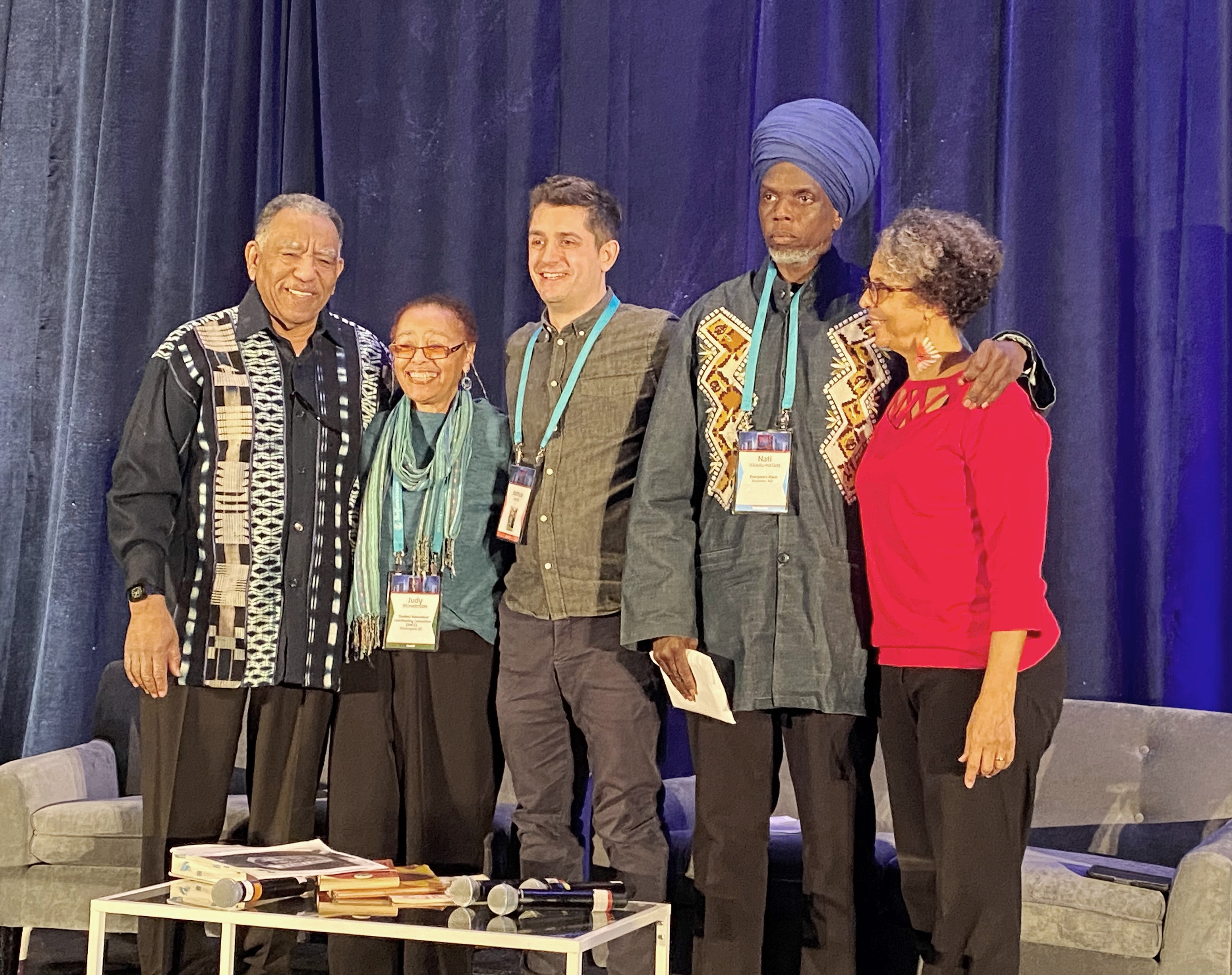 |
|
|
From left to right: W. Paul Coates, Judy Richardson, Joshua Clark Davis, Nati Kamau-Nataki, Shirikiana Aina Gerima
|
|
Davis began by offering some figures on the number of Black bookstores over the decades, and discussed the FBI's surveillance of Black bookstores as part of COINTELPRO (short for Counter Intellingence Program), which ran from 1956-1971. He pointed out that while many of the FBI's files are still unavailable, Freedom of Information Act requests have revealed surveillance of Black bookstores in at least half a dozen cities, and he noted that there were records on Coates, and for Drum and Spear, which operated from 1968 until 1974, there were "thousands of pages on that store alone."
Black bookstores and other activist business, he continued, emerged out of social movements of the time such as the civil rights movement and the Black Panther Party and, by the end of the 1960s, were booming despite legal persecution. Black bookstores saw something of a revival in the late 1980s and early 1990s, and Davis said that by the end of the '90s there were some 325 Black-owned bookstores in the U.S. (Coates, however, disputed these numbers, saying he doubted there were ever more than 80-100 operating at any one time.) From 2000 until around 2014, Black bookstores, as well as feminist and other activist bookstores, saw a tremendous decline in numbers due to pressure from chain superstores, online shopping and the financial crisis, but between 2014 and 2018, Black bookstores have seen the beginnings of a resurgence.
Gerima reported that her career in bookselling grew out of her career in filmmaking. She recalled that she and her husband, Haile Gerima, needed a place to make and distribute their movies (which include the 1993 film Sankofa, after which the store is named), and decided that they would sell books there as well. Lacking capital for books, they went to Kamau-Nataki's warehouse in Baltimore, where he told them to fill up a van and pay for it later. She said that one of the most important things to remember was that bookselling was part of a continuum. Saying she wants to be a "link in the chain," she explained that she may not be able to run Sankofa forever, but a good bookseller makes sure that the next generation has access to what was left behind for them.
Kamau-Nataki, meanwhile, said that he and his wife got into bookselling when they were both still students. Once they understood their "mis-education," they decided to go to the street corners to "sell books to young brothers and sisters." They opened their store, which also functions as a wholesaler of books by and about Black people, 35 years ago. Later in the discussion, when asked about the biggest challenges they face, Kamau-Nataki answered that selling drugs was a major issue in his community, but despite that, the bookstore remains a respected part of the neighborhood where no one sells any drugs.
The decision to found Drum and Spear Bookstore, Richardson recalled, grew out of what she and other civil rights activists had been doing at the Student Nonviolent Coordinating Committee. Their goal was to help "educate for liberation," and they decided to open a store on 14th street in D.C. She said the first time she saw the bookstore and met Tony Gibbons, the store's first manager, 14th street had just been tear-gassed. The store itself had only three or four bookshelves and there were no books. She and Gibbons drove up to Bookazine in New York, where there was a Black staff person who was "so amazed" that they were opening a bookstore in D.C. that he helped them build their inventory from the ground up. Later Richardson was also a major part of Drum and Spear Press, where she acquired and edited children's titles such as Bubbles by Eloise Greenfield.
Coates said he'd been in the bookselling and publishing businesses for 44 years, which began after leaving the Black Panther Party. He recalled getting together with other disillusioned activists, including former Panthers, ex-Communists, ex-socialists and ex-Pan Africanists, and trying to build a bookstore, publishing and printing business, as well as a prison literacy and education program. He called that decision a "no-brainer," saying it was a way of liberating the community. While different facets of the business fluctuated over the years, with Coates and his colleagues having to shut down "the prison part, the activist part" partially due to FBI interference, selling books and publishing titles by Black authors were always major aspects of their work.
He added that he based his publishing and bookselling model on what Drum and Spear pioneered in D.C., and he praised his fellow panelists, saying that Kamau-Nataki operates the "best-stocked Black bookstore in the country" and Gerima and her husband have carried on Drum and Spear's legacy. --Alex Mutter
Poet and historian Edward Kamau Brathwaite, "who aimed to create a distinctively Caribbean form of poetry to celebrate the region's voices and language," died February 4, the Guardian reported. He was 89. Brathwaite was "praised by the American poet Adrienne Rich for his 'dazzling inventive language, his tragic yet unquenchable vision, [which] made him one of the most compelling of late twentieth century poets.' "
Brathwaite began composing and performing his best-known work, The Arrivants: A New World Trilogy (1973), while teaching and studying history in Jamaica and Britain in the 1960s. The Guardian wrote that The Arrivants exemplified his ambition "to create a distinctively Caribbean form of poetry, which would celebrate Caribbean voices and language, as well as African and Caribbean rhythms evoking Ghanaian talking drums, calypso, reggae, jazz and blues. Brathwaite argued that the iambic pentameter embodied the British language and environment; it was not a meter that could carry the experience of hurricanes, slavery and a submerged African culture."
His other works include Mother Poem (1977), History of the Voice: The Development of Nation Language in Anglophone Caribbean Poetry (1984), Black + Blues (1976), Liviticus (2017), Words Need Love Too (2000), Trench Town Rock (1994) and The Zea Mexican Diary (1993).
Brathwaite served on the board of directors of Unesco's History of Mankind project for more than 30 years. He was awarded the Neustadt international prize for literature in 1994. Other awards included the Griffin international poetry prize for his collection Born to Slow Horses (2006), the Bussa award, the Casa de las Américas prize, and the PEN/Voelcker award for poetry in 2018.
Small Press Distribution commented: "SPD is saddened to announce that inimitable Caribbean poet, performer, and teacher Kamau Brathwaite has passed away. His kindness, generosity and eloquence will be sorely missed by those he left behind. We will miss his belief in what poetry could do, could become, could be."
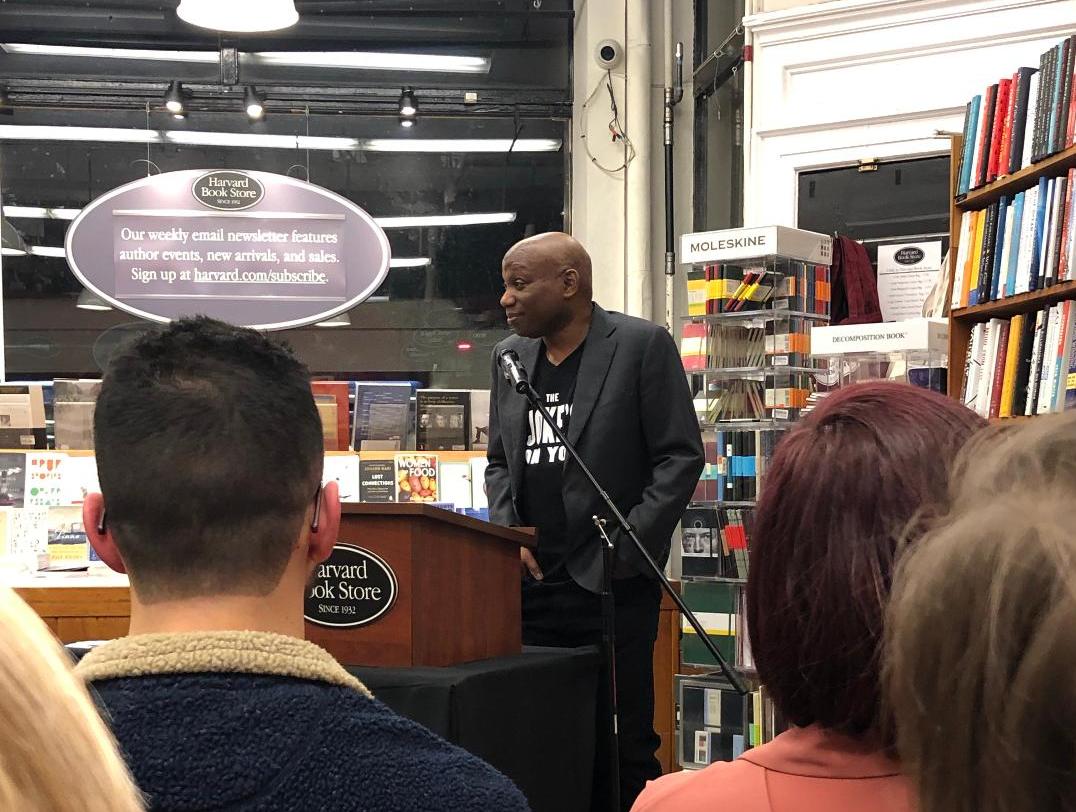
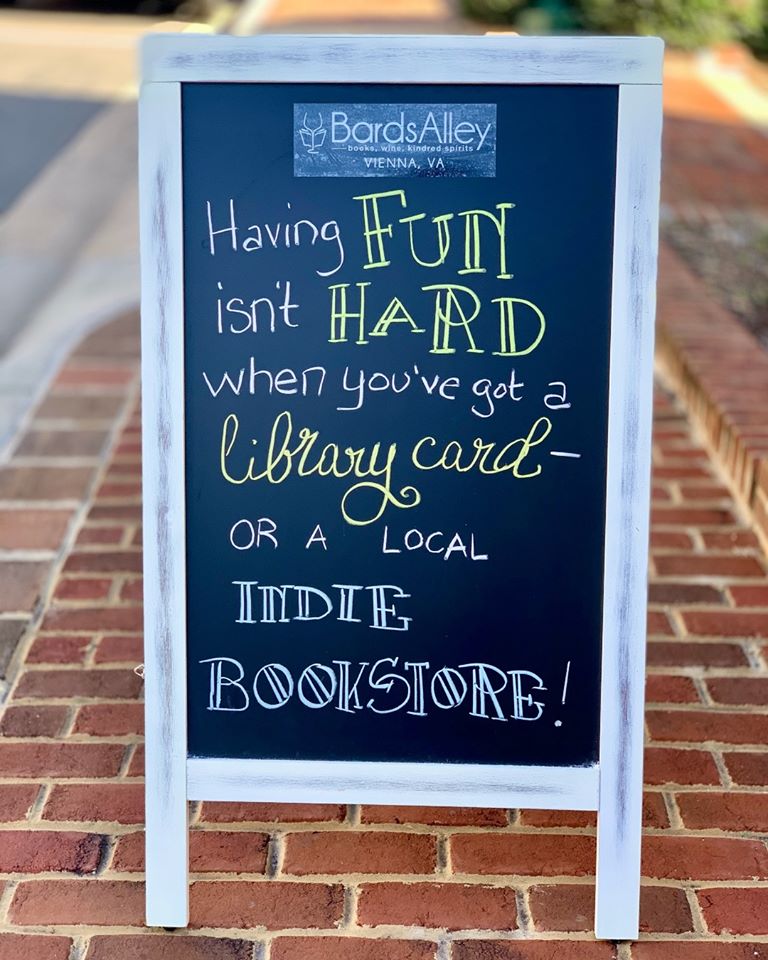 "February is #LoveYourLibraryMonth, and we couldn't resist putting this Arthur-themed shoutout to libraries on this week's #NAIBAchalkboard!" Bards Alley Bookshop & Treats, Vienna, Va., posted on Facebook. The sidewalk chalkboard reads: "Having fun isn't hard when you've got a library card--or a local indie bookstore!"
"February is #LoveYourLibraryMonth, and we couldn't resist putting this Arthur-themed shoutout to libraries on this week's #NAIBAchalkboard!" Bards Alley Bookshop & Treats, Vienna, Va., posted on Facebook. The sidewalk chalkboard reads: "Having fun isn't hard when you've got a library card--or a local indie bookstore!"
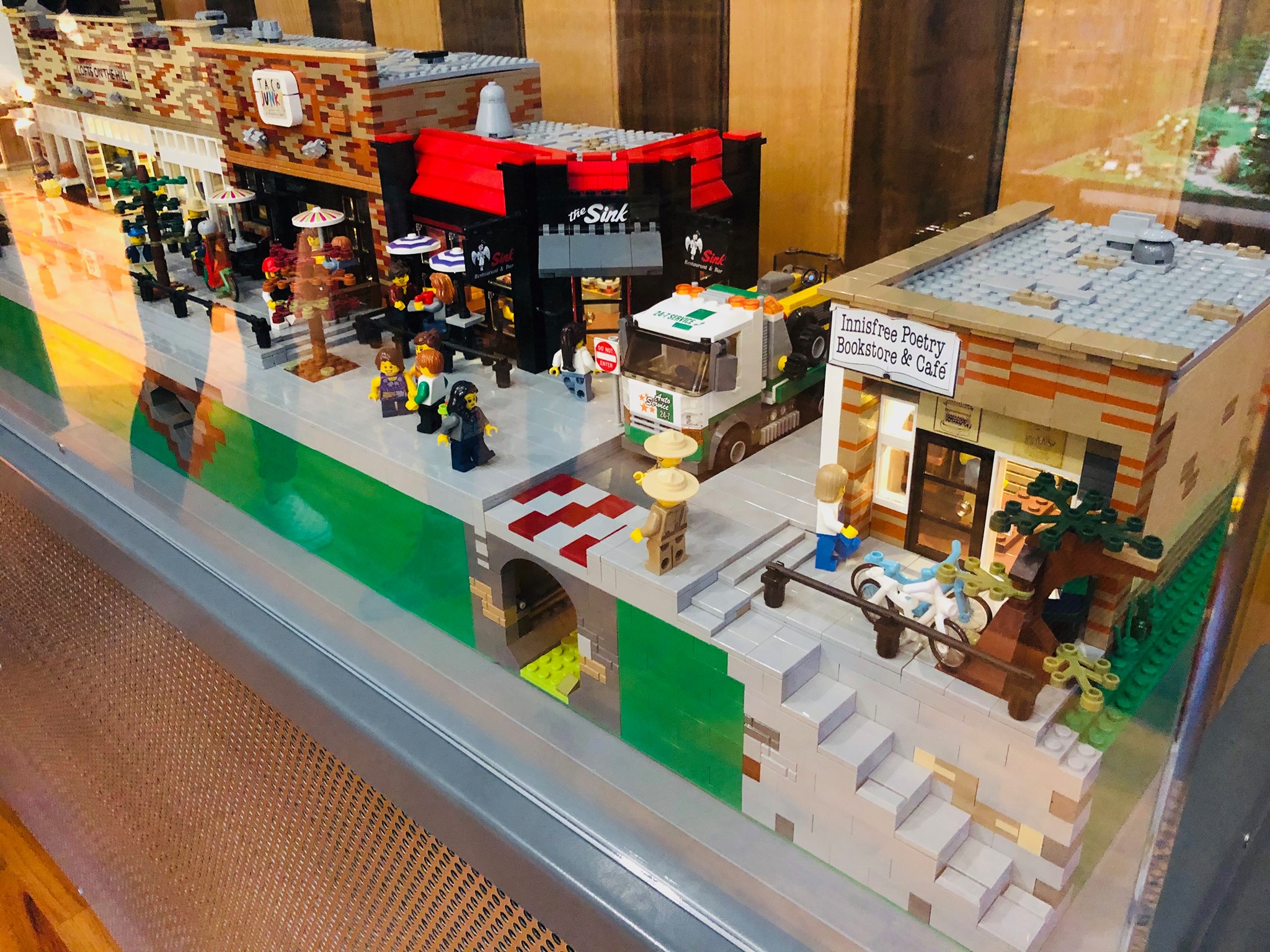 Posted on Facebook by Innisfree Poetry Bookstore & Café, Boulder, Colo.: "Head over to Old Main to see a miniature recreation of The Hill built from LEGOs! The exhibit is called 'Hit the Bricks!' and features some of our favorite Hill businesses."
Posted on Facebook by Innisfree Poetry Bookstore & Café, Boulder, Colo.: "Head over to Old Main to see a miniature recreation of The Hill built from LEGOs! The exhibit is called 'Hit the Bricks!' and features some of our favorite Hill businesses."
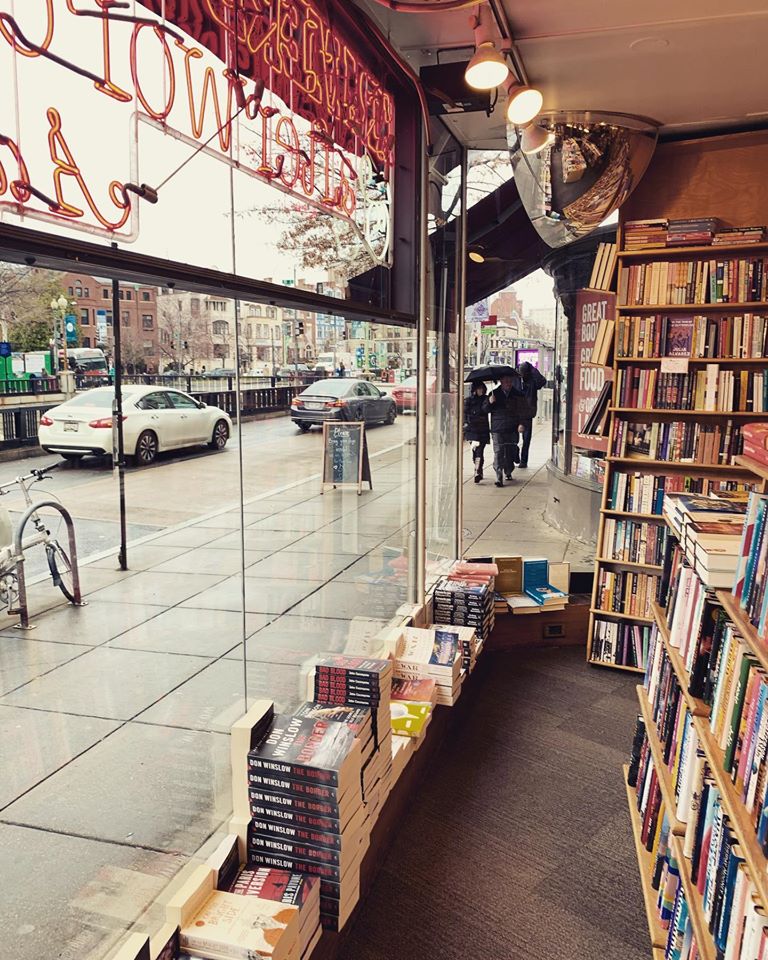 "True readers know how special rainy days are," Kramerbooks & Afterwords Café posted on Facebook yesterday.
"True readers know how special rainy days are," Kramerbooks & Afterwords Café posted on Facebook yesterday.
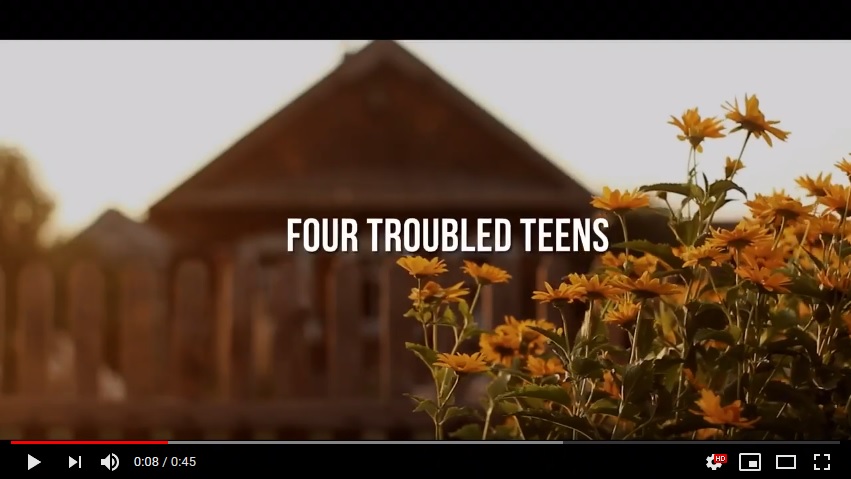 We, the Wildflowers by L.B. Simmons (Spencer Hill Press).
We, the Wildflowers by L.B. Simmons (Spencer Hill Press).
Today:
HBO's Real Time with Bill Maher: Ezra Klein, author of Why We're Polarized (Avid Reader Press/Simon & Schuster, $28, 9781476700328).
Starting in April--National Poetry Month--and continuing through the spring and summer, eight new episodes of Poetry in America, comprising season two, will air on public television stations and on the World Channel. The series will also be available to stream on pbs.org and individual episodes will be available on poetryinamerica.org.
Each episode focuses on a single major American poem, which guests read and discuss with Elisa New, the series creator, host and director as well as the Powell M. Cabot Professor of American Literature at Harvard University. Poetry in America is produced by Verse Video Education of Cambridge, Mass., and presented by WGBH Boston.
The poems that will be discussed are by Marilyn Chin, Elizabeth Bishop, Yusef Komunyakaa, Marianne Moore, Mark Doty, Stephen Sondheim, William Carlos Williams, and Walt Whitman.
The people discussing the poems include Katie Couric, Al Gore, Sheryl Sandberg, Bill T. Jones, John Kerry, Mary Chapin Carpenter, Nas, John Hodgman, Tony Kushner, Elena Kagan, Donna Lynne Champlin, Julie Taymor, Raúl Esparza, Jonathan Adler, Simon Doonan, Maxine Hong Kingston, Melissa Errico, Steven Pinker, Kerry O'Malley, and others.
"I'm excited about the many distinct worlds to which the poems of this season take us--from a poem set in a New York barber shop, to one set in San Francisco's Chinatown, to one that takes us deep under the ocean and nose to nose with specimens of marine life," New said. "Poems can take us where journalism does not--into what it feels like, in the moment, to have a particular experience. Each of the poems we present this season has that character."
Season One reached more than 1.3 million viewers and aired on 96% of public television stations nationwide.
Meg McLaren's The Station Mouse won this year's £3,000 (about $3,920) Scottish Book Trust Bookbug Picture Book Prize, which is voted for by children and recognizes the most popular new picture books by Scottish authors or illustrators. The other two shortlisted titles were Sophie Johnson: Unicorn Expert by Morag Hood and The Prince and the Witch and the Thief and the Bears by Alastair Chisholm.
---
An 18-title shortlist across three categories has been released for the Waterstones Children's Book Prize 2020. The Bookseller reported that every year Waterstones booksellers vote for the books "they believe are the very best in new children's writing and illustration." Category winners receive £2,000 (about $2,615), then vie for the overall title of Waterstones Children's Book of the Year 2020 and an extra £3,000 (about $3,920). Winners will be announced March 26 in London. Check out the complete shortlist here.
Waterstones children's buyer Florentyna Martin said: "One of the greatest pleasures in reading is the opportunity to explore, and this year's authors and illustrators invite readers to join them on a voyage of discovery. In a shortlist of immersive fact and fiction, our booksellers have chosen to share narratives that offer readers of all ages the chance to explore a wide range of topics, from nature and identity, to inner strength and the fabric of society. Whether meeting intriguing characters, navigating vibrant settings or uncovering thrilling plots, these books investigate what it means to understand yourself and the world around you."
---
The longlist for the A$50,000 (about U$33,660) 2020 Stella Prize, "celebrating great books by Australian women," has been announced and can be seen here. The shortlist will be made public March 6 and the prize will be award April 8.
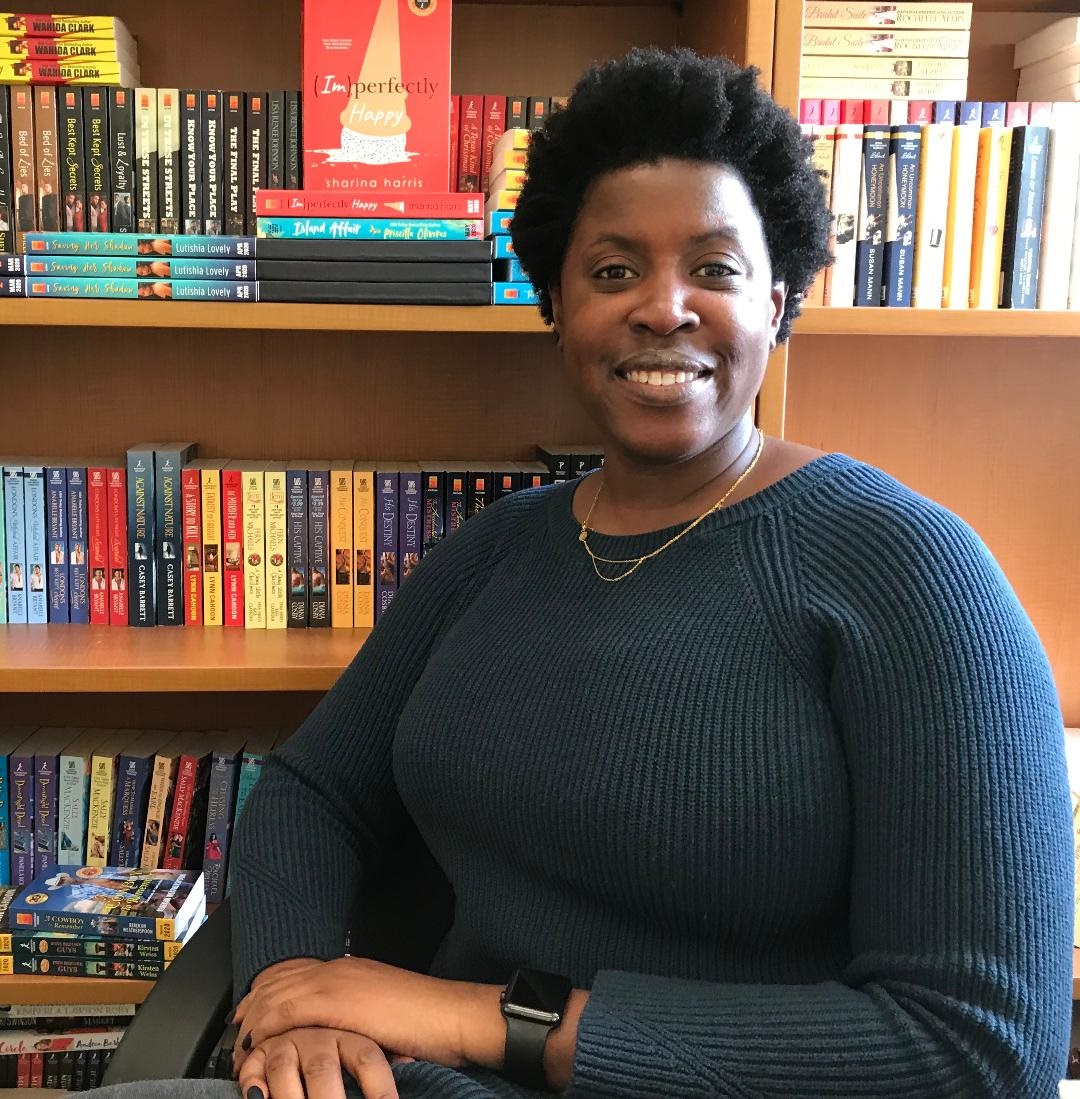 Esi Sogah joined Kensington Publishing in January 2013 and was recently promoted to executive editor. She has worked with such authors as Alyssa Cole, Kate Clayborn, Mary Monroe and Dr. Jen Gunter. She acquires across all genres, fiction and nonfiction, and has recently taken on the role of managing strategy for the Dafina imprint, which focuses on books featuring stories of race and cultural identity. Dafina is celebrating its 20th anniversary in 2020 and is home to such authors as Mary B. Morrison, Kiki Swinson, Shelly Ellis, Rochelle Alers and Tu-Shonda L. Whitaker.
Esi Sogah joined Kensington Publishing in January 2013 and was recently promoted to executive editor. She has worked with such authors as Alyssa Cole, Kate Clayborn, Mary Monroe and Dr. Jen Gunter. She acquires across all genres, fiction and nonfiction, and has recently taken on the role of managing strategy for the Dafina imprint, which focuses on books featuring stories of race and cultural identity. Dafina is celebrating its 20th anniversary in 2020 and is home to such authors as Mary B. Morrison, Kiki Swinson, Shelly Ellis, Rochelle Alers and Tu-Shonda L. Whitaker.
On your nightstand now:
Oh man. Too many books, to be honest. I was in an editing and production flurry at the end of 2019, working on a lot of heartwarming, holiday-themed books like The Gift of Family by Mary Monroe, as well as updated versions of classic titles, like Here and Now by Kimberla Lawson Roby, which means I bought a bunch of books for myself as a reward that I am only now getting a chance to read. I'm reading (and loving) The Starless Sea by Erin Morgenstern. Next up is How We Fight for Our Lives by Saeed Jones.
Favorite book when you were a child:
I probably read The Westing Game by Ellen Raskin dozens of times as a kid--and a few more times as an adult. I wanted nothing more than to be Turtle Wexler. Looking back, I think I probably connected strongly with the feeling of being slightly out of place. Not unnoticed, but maybe not fully seen. And as an editor, I can see that The Westing Game was probably the beginning of me being fascinated by what a well-crafted plot and careful characterization can do. (A very close second is From the Mixed-Up Files of Mrs. Basil E. Frankweiler by E.L. Konigsburg.)
Your top five authors:
Virginia Woolf, Charles Dickens and Toni Morrison spring to mind immediately. I learned so much about writing and humanity through their work. To round out the top five, I've always believed your favorites are the ones you return to again and again. With a foundation in romance fiction, I'd have to say Lisa Kleypas and Beverly Jenkins. As an editor, they are shining examples of authors who show you humanity in all its glory and really celebrate what it is to live and love. As a reader, I can get lost in any one of their books, no matter how many times I've read it.
Book you've faked reading:
Well, this might get my romance card taken away from me, but pretty much anything by Jane Austen--with the exception of Northanger Abbey, which I'm told is the least-Austen Austen. But Jane has still taught me so much! Namely, how to identify what makes something work for its audience, even if the audience doesn't happen to be me.
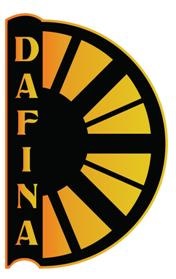 Book you're an evangelist for:
Book you're an evangelist for:
From our list, I think everyone should read God Don't Like Ugly by Mary Monroe, absolute classic. And, new to our list, I am unbelievably excited to launch Rebekah Weatherspoon's Cowboys of California series with A Cowboy to Remember, which seamlessly blends romance, fairytales and the lesser-known past and present of black cowboys. Looking outside our house--it doesn't get much better than Rules of Civility by Amor Towles. I think I texted lines from that book to pretty much everyone I know.
Book you hid from your parents:
I don't know that I hid any books from my parents. (Although my mother did hide her romance novels from me. Unsuccessfully.)
Book that changed your life:
In thinking about books that shaped my current life, Beloved is top of the list. I read it in high school, and it spoke to me more deeply than anything else I had read to that point. And, at the time I was editor of my high school paper and got the chance to interview Ms. Morrison. Which is a memory I treasure to his day.
During my editorial career, working on Uptown Thief and the entirety of Aya de León's Justice Hustler series gave me new understanding of the power of genre fiction to not just entertain but also inform and inspire real change.
Book you most want to read again for the first time:
In house: Wifey by Kiki Swinson. She absolutely changed the game.
Out of house: Tell the Wolves I'm Home by Carol Rifka Brunt.
Books I'm looking forward to:
We've got so many great books coming out in 2020, so I can't possibly cover them all, but I do want to highlight (Im)Perfectly Happy by Sharina Harris, about four friends who revive their college group, the Brown Sugarettes Masterminds, in order to figure out where their lives turned off the planned path. The Seaside Café by legendary Rochelle Alers launches her new Book Club series. We've also have some incredible repackaged classics from Wahida Clark and Donald Goines, plus some very exciting new projects that I can't talk about yet!
Spirit Run: A 6,000-Mile Marathon Through North America's Stolen Land by Noé Álvarez (Catapult, $26 hardcover, 240p., 9781948226462, March 3, 2020)
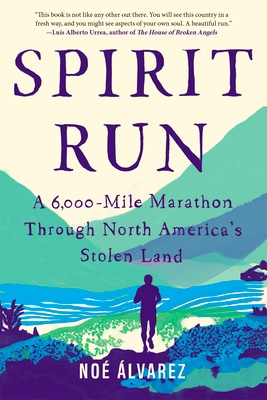 The son of Mexican immigrants, Noé Álvarez grew up poor in eastern Washington, watching his parents work menial jobs for pitifully low wages. He knew college was his best shot at getting out, but once he arrived at Whitman College, he felt aimless and overwhelmed. A chance encounter at a student conference led him to join the Peace and Dignity Journeys (PDJ), a group that conducts ceremonial runs throughout North America, in a quest to honor indigenous peoples and their stories. Irresistibly drawn to the run and its mission, Álvarez spent several months with the PDJ group, traveling roughly 6,000 miles from British Columbia to Guatemala. His memoir, Spirit Run, chronicles his physical and emotional journey and brings attention to the traumas the PDJ runs are seeking to confront.
The son of Mexican immigrants, Noé Álvarez grew up poor in eastern Washington, watching his parents work menial jobs for pitifully low wages. He knew college was his best shot at getting out, but once he arrived at Whitman College, he felt aimless and overwhelmed. A chance encounter at a student conference led him to join the Peace and Dignity Journeys (PDJ), a group that conducts ceremonial runs throughout North America, in a quest to honor indigenous peoples and their stories. Irresistibly drawn to the run and its mission, Álvarez spent several months with the PDJ group, traveling roughly 6,000 miles from British Columbia to Guatemala. His memoir, Spirit Run, chronicles his physical and emotional journey and brings attention to the traumas the PDJ runs are seeking to confront.
Álvarez writes movingly of his mother's endless shifts at the apple-packing plant and his father's backbreaking labor in fruit picking and construction. Both originally undocumented, his parents achieved their citizenship and fed their children, but at great cost to themselves. "I run to find fragments of my own parents sprinkled over the earth," Álvarez writes of a run through a forest in British Columbia. He runs with the weight of "their stories of hope and desperation" always in his mind, hoping to find clarity, redemption, even peace. Like the run itself, though, the journey is not nearly that simple.
Led by several larger-than-life men whose names--Tlaloc, Andrec, Pacquaio, Trigger--are as distinct as their leadership styles, the run is a punishing relay helped along by salmon jerky, endless bottles of water and drivers (usually the abovementioned men) in gray minivans. Politics and personal drama, exacerbated by hostile locals, inclement weather and exhaustion, threaten to derail the run again and again. Álvarez witnesses moments of transcendence--ceremonial prayers, outpourings of grief, bursts of joy--but his narrative sometimes gets bogged down in the dramas of irritable runners and leaders engaged in power struggles. The drama is at least engaging: his fellow runners, including a Canadian indigenous woman named Zyanya Lonewolf, emerge as distinct personalities. Many are running to honor their families and ancestors, but like Álvarez, most of them are also running from something: the weight of discontent, poverty, low expectations or grief.
Running, Álvarez begins to learn, is "a sacred motion," a "rhythm connecting me to the wind, the water, the woods" that forces him to deal with the highs and lows of his family's migration story. Like the act of running, and like Álvarez's PDJ experience, Spirit Run is a complex, thought-provoking journey shot through with flashes of glory and hope. --Katie Noah Gibson, blogger at Cakes, Tea and Dreams
Shelf Talker: Noe Álvarez's compelling memoir chronicles his 6,000-mile ultramarathon through North America with a group seeking justice for indigenous peoples.
 Maybe it's because, on the good days as well as the bad, there's no other business, however flawed, that I can imagine being in. Whatever the reason, I always come away from our gatherings at Winter Institute or regional bookseller conferences or BookExpo with a healthy dose of exhaustion and exhilaration. No matter how hard the questions are that we face as an industry to get better at what we do; no matter how many times we fall short, I somehow, even as a card-carrying fatalist, find reason to have faith in book people.
Maybe it's because, on the good days as well as the bad, there's no other business, however flawed, that I can imagine being in. Whatever the reason, I always come away from our gatherings at Winter Institute or regional bookseller conferences or BookExpo with a healthy dose of exhaustion and exhilaration. No matter how hard the questions are that we face as an industry to get better at what we do; no matter how many times we fall short, I somehow, even as a card-carrying fatalist, find reason to have faith in book people.
This hit me once again on the final morning of Wi15 during the Publisher Rep Breakfast Presentations. I was sitting at a table with two former bookstore colleagues as well as three booksellers I'd just met in person, though I "knew" them through stories we'd written in Shelf Awareness. Our conversations marked the past and the present as well as the future.
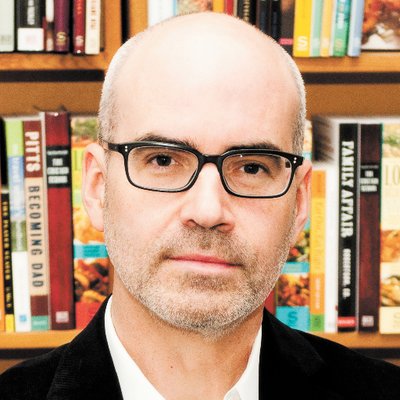 |
|
| Doug Seibold | |
Then the first presenter, Doug Seibold, founder and president of Agate Publishing, took the podium and joined the conversation. "I usually take a little bit of a different tack when I come up here and speak to you," he said, noting that for him the moment represented "an opportunity to talk about a very special, symbiotic relationship that I feel exists between independent publishers and independent bookstores.... A lot of you know that, but I do always feel the need to come up and reintroduce it to everybody."
Seibold noted that when he comes to Winter Institute, "I really like to focus very tightly on one book, and one aspect of what Agate does, where I feel like our alliance with indie stores is most important. And that's been our passion and our commitment to finding and creating opportunity for new voices, new writers, especially those from corners of society that haven't had much opportunity, historically, in our industry. That's always been the part of my work as a publisher where I knew I was in sync with indie stores, maybe more than with any other part of the book industry."
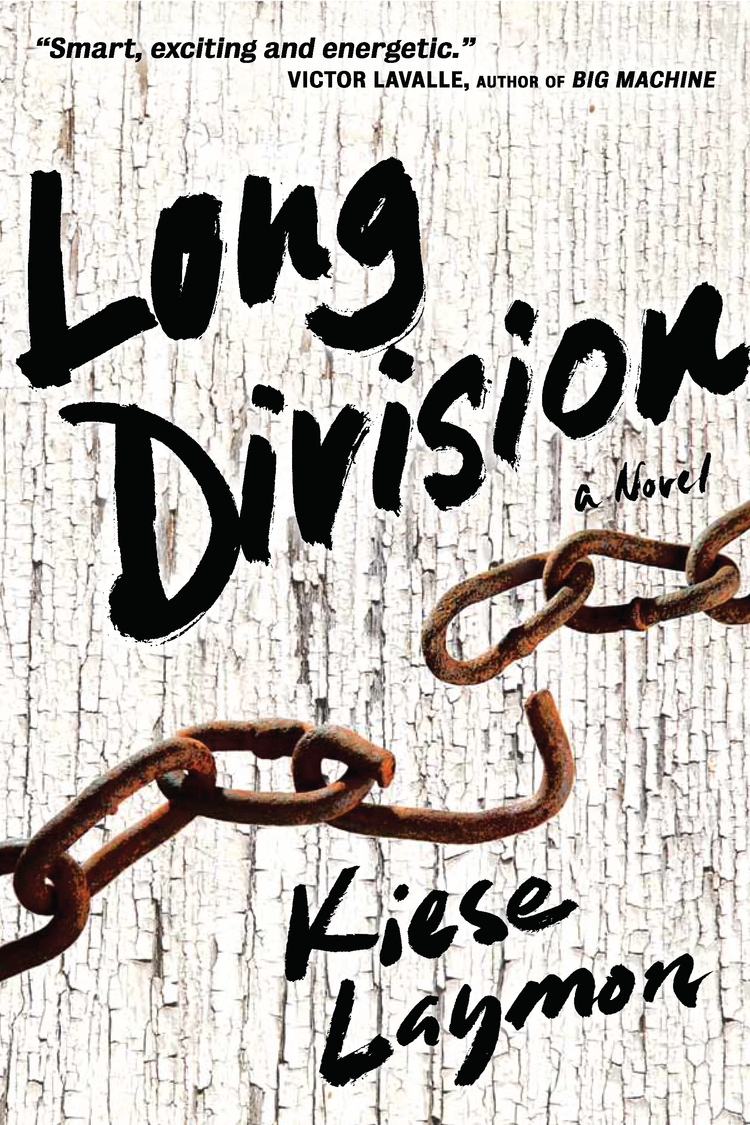 Displaying a visual of Agate titles--Jesmyn Ward's Where the Line Bleeds (2008), Long Division by Kiese Laymon (2013) and Crown: An Ode to the Fresh Cut by Derrick Barnes, illustrated by Gordon C. James (2013)--Seibold observed: "I'm sure most of you recognize these authors, if not these books. All of these folks have gone on to work with Big 5 presses in the years since little Agate gave them their first home. All of these books were successes for Agate thanks in huge part to all of you. I'm sure you're selling plenty of their newer books. But this connection that we have to finding and championing new voices, this connection I feel to all of you in this mission, I don't always feel that from other parts of our industry--big chains, big boxes, big media, big tech; it's not the same."
Displaying a visual of Agate titles--Jesmyn Ward's Where the Line Bleeds (2008), Long Division by Kiese Laymon (2013) and Crown: An Ode to the Fresh Cut by Derrick Barnes, illustrated by Gordon C. James (2013)--Seibold observed: "I'm sure most of you recognize these authors, if not these books. All of these folks have gone on to work with Big 5 presses in the years since little Agate gave them their first home. All of these books were successes for Agate thanks in huge part to all of you. I'm sure you're selling plenty of their newer books. But this connection that we have to finding and championing new voices, this connection I feel to all of you in this mission, I don't always feel that from other parts of our industry--big chains, big boxes, big media, big tech; it's not the same."
He also noted the role indie booksellers played in bringing Iliana Regan's voice "out into the world, an effort that's ongoing," with her 2019 memoir Burn the Place, which was longlisted for the National Book Award. Regan, he said, was the one writer he was there to highlight this time. The paperback edition of Burn the Place will be out in June, and Agate is publishing Regan's memoir/narrative/handbook on foraging in the spring of 2021, as well as a cookbook and technique guide in the fall of 2022.
Agate's successful connection with indie booksellers "is an especially gratifying thing to be able to say when you're a small press that's become known for bringing out the first books of important writers," Seibold observed. "So thank you one last time for all that you do for Agate and all of the other publishers.... Thank you for making space for the new voices we bring you, and for helping us and our writers find a place in our industry."
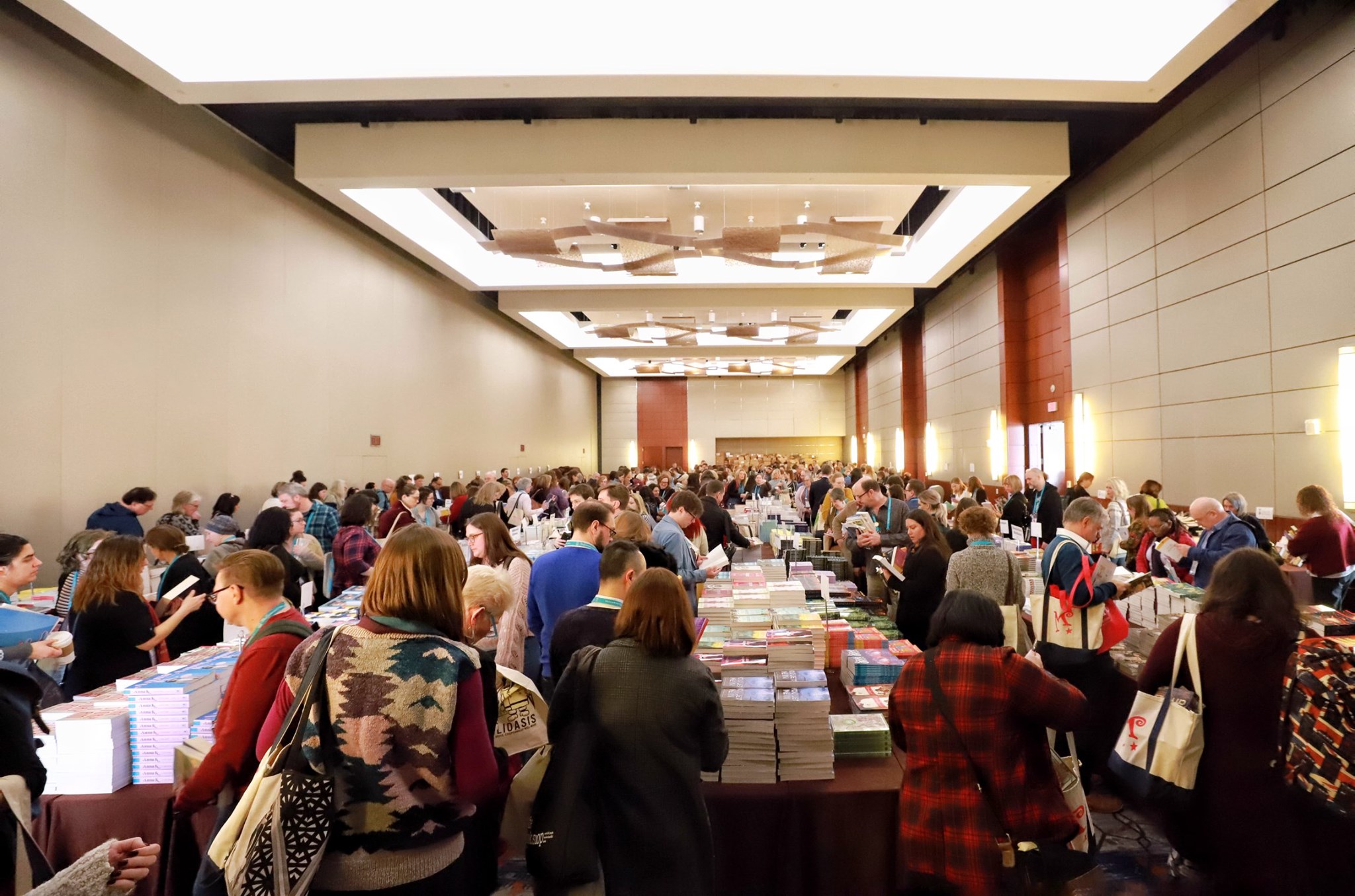 |
|
| Booksellers on the hunt for new voices in the galley room at Wi15 | |
For many reasons, making space for new voices was a dominant topic of discussions at Wi15 and led to many intense conversations, formally and informally, about the book trade's role and responsibility in the world. Those conversations, as subsequent headlines attest, continue and change daily.
In 2009, the fourth Winter Institute was held under the shadow of the Great Recession. "Considering that many of them have had recent sales declines of 10% and more, the hundreds of booksellers... were remarkably cheerful and energetic," Shelf Awareness reported. "As always at these events, participants enjoyed being together in a focused environment and talking shop for several days straight. The mood may also have stemmed from a streak of good-natured fatalism that has long existed among many independent booksellers. After all, in the last two decades, they've dealt with a range of bricks-and-mortar competition, the rise of online bookselling, uncertainty about new digital forms, a supposed decline in reading, storms, hurricanes, floods, earthquakes--and other recessions. So what's new? And unlike some other retailers, booksellers tend to be especially creative, intelligent people who rise to challenges like this and share camaraderie in good times and bad."
May our creative fatalism and our ongoing discussions continue as we do the hard work. --Robert Gray, contributing editor